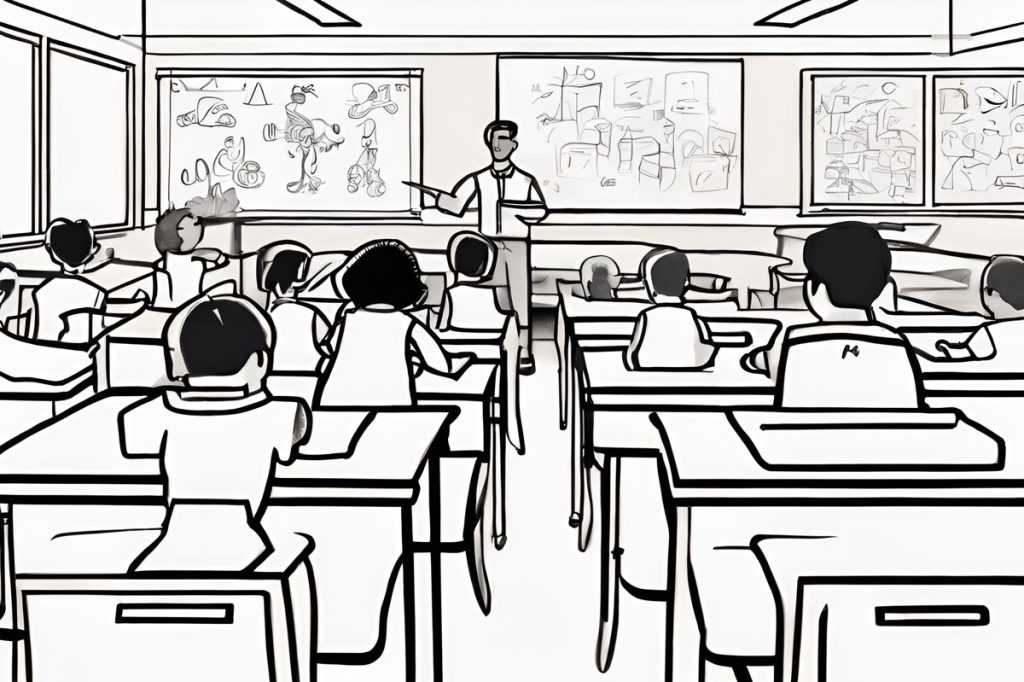Private education in Cyprus is booming due to global influences like geopolitical instability, the Ukrainian crisis, and a thriving tech sector in Limassol. Schools are expanding and adapting to meet the demands of international families and local Cypriots seeking quality education amidst changing demographics, with regions like Limassol, Larnaca, and Nicosia seeing significant growth in the educational sector.
What are the factors driving the growth of private education in Cyprus?
The growth of private education in Cyprus is driven by geopolitical instability, the Ukrainian crisis, a significant Russian presence, and the demands of an expanding tech sector in Limassol. International families and local Cypriots seek quality education, prompting schools to expand and adapt to diverse and increasing enrolments.
Educational Growth Amidst Geopolitical Changes
With geopolitical instability impacting countries around the world, Cyprus has seen a notable influx of individuals seeking stability and quality education for their families. The English language schools in Cyprus are experiencing unprecedented growth, a phenomenon that is not solely due to the arrival of foreign companies on the island. Akis Gregoriou, President of the Cyprus Association of Private Schools and Director General of the Grammar School in Nicosia, attributes this rise to global unrest, citing the conflicts in Israel and Ukraine as significant factors.
In particular, the war in Ukraine has led to the relocation of many Ukrainians to Cyprus. Before the Ukrainian crisis, there was already a significant Russian presence in Limassol, which contributed to the educational sector’s expansion there. Limassol, a city that has become a hub for more than 20,000 tech company employees and their families, is actively constructing new schools to cater to this growing population. This development highlights the educational sector’s responsiveness to the changing demographics and demands of the island.
The Rise of International Education
The surge in demand for international education on the island is evident in the growing enrollment numbers at establishments like Foley’s School and the Pascal Private English School. Niki Zachariadou, Careers Counselor at Pascal, notes the rising demand from a diverse international cohort, including families from Russia, Ukraine, Israel, China, Saudi Arabia, and local Cypriots. Pascal, as the largest private educational provider on the island, is expanding its premises in all three cities where it operates, namely Nicosia, Larnaca, and Limassol.
Furthermore, Michael Orford, Deputy Head and Careers Advisor at Foley’s School in Limassol, reports a similar trend. With a history stretching back several decades, Foley’s has recently moved to a new location that can accommodate the swell in student numbers. The school’s experience mirrors the national pattern: a consistent increase in families seeking international education in English.
Regional Variations in Educational Expansion
While Limassol is at the forefront of the private education boom, other regions are not far behind. In Larnaca, expansion is occurring rapidly, and even though Nicosia has seen a smaller increase, foreign investment interest is sparking educational growth there as well. These expansions are not only in response to the local demands but also to the potential and perceived value of investing in education by international stakeholders.
Stella Luizinho, a Careers Advisor at the International School of Paphos, has observed growth at her institution over the past three years, initially linked to Cyprus’s accession to the EU. Increased job opportunities and the allure of a safe country have attracted families, particularly when remote work became more feasible during the Covid pandemic. The curriculum’s high standards and English as a medium of instruction are key appeals. The school has also seen a rise in students from Russia, Ukraine, and the Middle East due to regional conflicts.
Adapting to New Educational Landscapes
Cyprus’s educational institutions are not only expanding physically but are also adapting to new demographic realities and learning requirements. The country’s schools are becoming increasingly international, reflecting the societal shifts and market needs. They are evolving to provide education that meets the high standards demanded by a diverse student body, influenced by global events and the changing face of the workforce.
The private education system in Cyprus is a clear example of how local infrastructures can quickly adapt to global trends. As the island continues to attract a multinational population, its schools remain at the forefront, ready to educate the next generation in an increasingly interconnected world.
What are the factors driving the growth of private education in Cyprus?
The growth of private education in Cyprus is driven by geopolitical instability, the Ukrainian crisis, a significant Russian presence, and the demands of an expanding tech sector in Limassol. International families and local Cypriots seek quality education, prompting schools to expand and adapt to diverse and increasing enrolments.
How has the Ukrainian crisis impacted the private education sector in Cyprus?
The war in Ukraine has led to the relocation of many Ukrainians to Cyprus, contributing to the expansion of the educational sector, particularly in regions like Limassol. The influx of individuals seeking stability and quality education for their families has boosted enrollment numbers in English language schools on the island.
Which regions in Cyprus are experiencing significant growth in private education?
Limassol is at the forefront of the private education boom in Cyprus, with a growing tech sector and an increasing number of international families relocating to the city. However, other regions like Larnaca and Nicosia are also experiencing rapid expansion in the educational sector to meet the demands of a diverse student population.
How are educational institutions in Cyprus adapting to meet the changing demographic and educational landscape?
Educational institutions in Cyprus are not only expanding physically but also adapting their curricula and facilities to cater to the diverse needs of students from various backgrounds. Schools are becoming increasingly international, offering high-quality education in English and responding to global events and workforce trends to prepare the next generation for an interconnected world.

